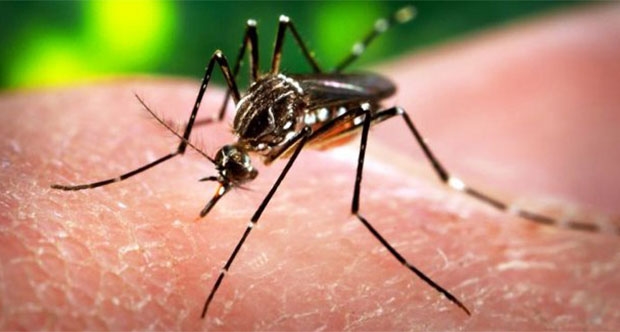By Moinafatima Soilihi Himidi
The zika virus is spread by black mosquitoes with bands of white dots that look like white stripes. These mosquitoes bite during the day, especially in the early morning and late afternoon. The symptoms of zika had been stated as follow: Fever, rash, joint pain. Red eyes, muscle pain and headache.
The Zika virus has been linked to unusually small heads and brain damage in newborns called microcephaly in children born to infected mothers, as well as blindness, deafness, seizures and other congenital defects. In adults, the virus is linked to a form of temporary paralysis, called Guillain-Barre syndrome.
In June 2016, statistics showed that that positive tests for people with suspected zika virus infection have increased from 14 percent in February to 64 percent in June. Positive tests through blood supply screening also increased, reaching 1.8 percent during the latest week of reporting starting 3 July. Many of the 5,582 people who tested positive for zika virus infections were tested because they had symptoms of zika. Of the 672 pregnant women, 441 (66 percent) experienced symptoms of zika and 231 (34 percent) had no symptoms.
According to World Health Organisation (WHO), last year, Â zika virus was spreading through northeastern Brazil, thousands of children with suspected microcephaly were born in the region. Though many causes of microcephaly exist, suspicion has focused on zika because the incidence of such cases has increased in areas where the virus has taken hold. In addition, several countries, including Brazil, have increased reports of Guillain-Barre Syndrome, a neurological disorder that can result in paralysis.
As soon as WHO did realise how dangerous the virus is and how speedy the virus was going from one person to another inside Brazil, WHO launched its global Strategic Response Framework and Joint Operations Plan which focuses on mobilising and coordinating partners, experts and resources to respond to the spread of zika virus and the neonatal malformations and neurological conditions associated with to help the Brazilian populace.
œA coordinated international response is needed to improve surveillance, to intensify the control of mosquito populations and to expedite the development of diagnostic tests and vaccines to protect people who are suffering from zika …”(WHO Director General Dr. Margaret Chan)
Least but not last, there is no specific medicine to treat zika, but according to Jon Cohen, a zika vaccine could prove its worth at the beginning of 2018. Hence, for now, zika can merely be treated at home with good rest, drinking plenty of fluids and taking paracetamol to reduce pain and fever. ***
